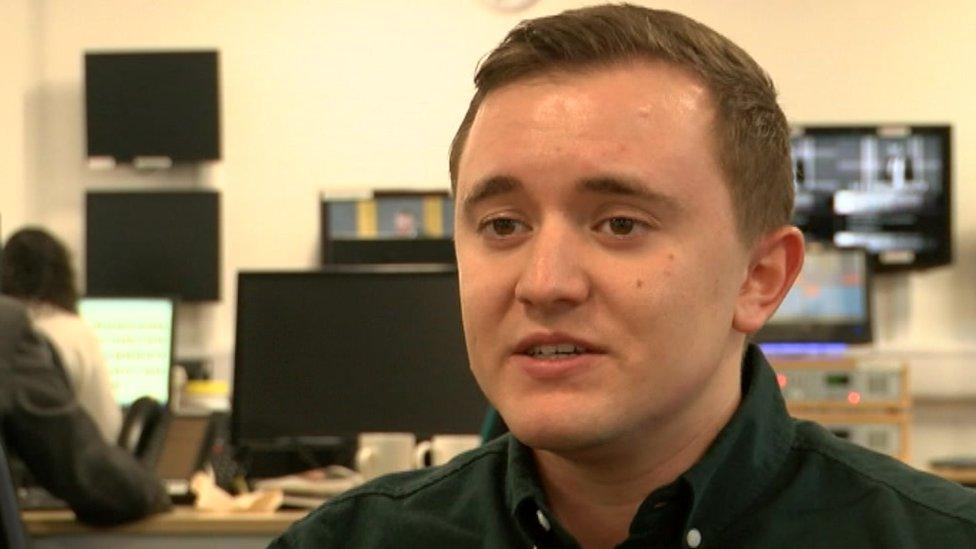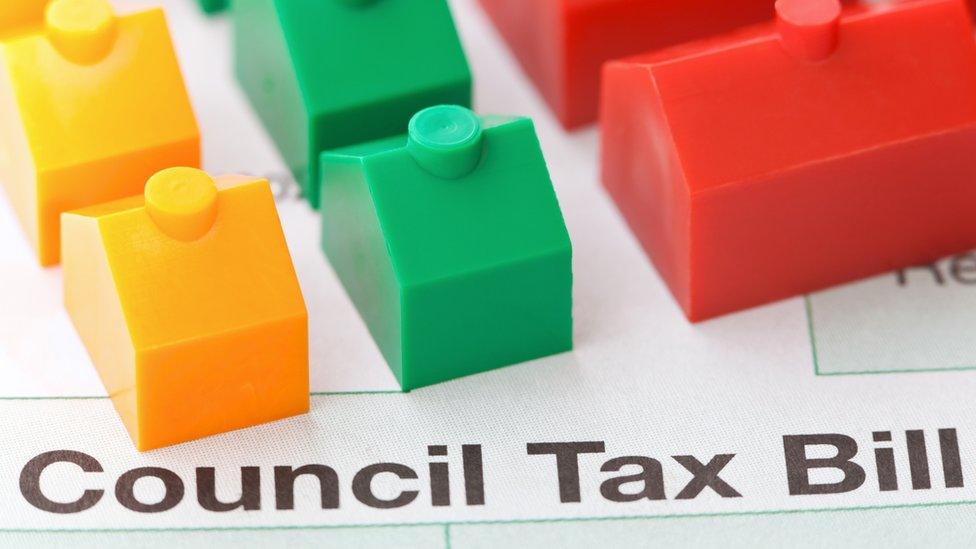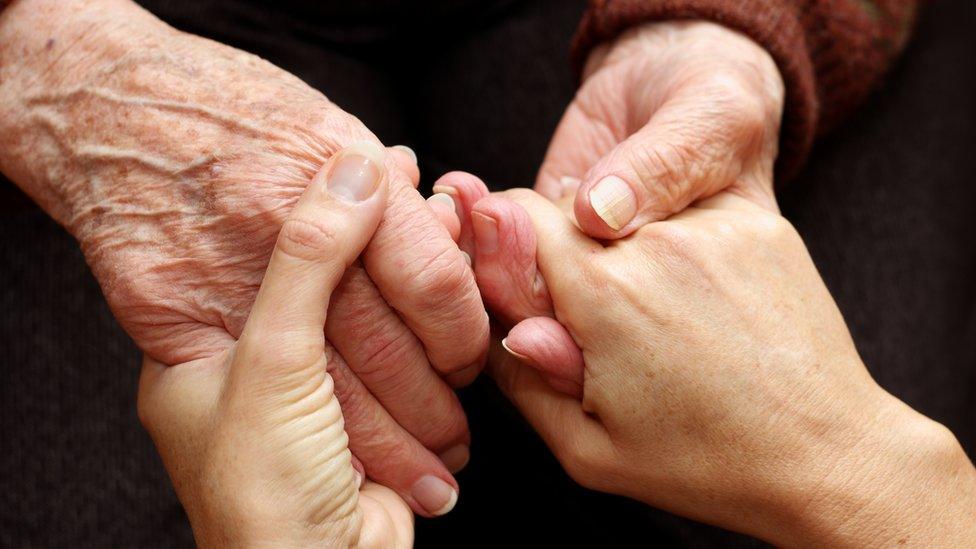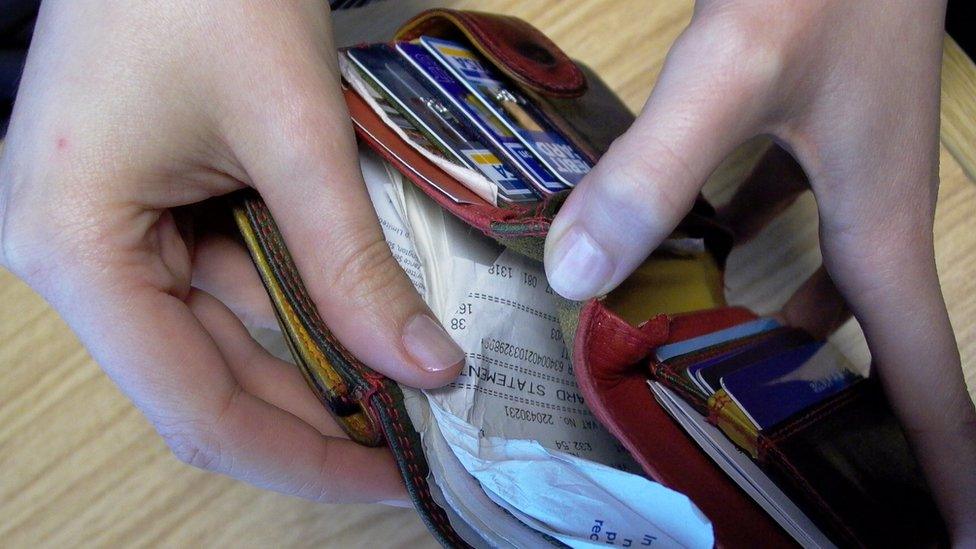People paying more council tax for less, say researchers
- Published
- comments

Guto Ifan says council tax could provide a quarter of councils' revenue by 2023-24
Council tax payers in Wales are paying more for less - and a new system of funding should be considered for county halls, academics have said.
A report shows how services have become more dependent on council tax as Welsh Government funding is cut.
Cardiff University researchers say the tax is unfair and its growing role strengthens the case for a new system.
They also reveal the cost of caring for children in local authority care rose by a third between 2010 and 2018.
The number of children in care rose by 1,710 over that period, pushing up the cost of care by £96m.
Councils get most of their funding in an annual grant from the Welsh Government, but that grant has shrunk during 10 years of cuts imposed in Westminster.
Since 2009-10, the proportion of funding coming from council tax has risen from 13.8% to 19%.
The average Band D council tax bill in Wales was £1,492 this year - up from £1,086 in the 2009-10 financial year.
Despite that increase, cuts in government funding mean councils still have less to spend overall.
The report, by Cardiff's Wales Governance Centre, highlights that council tax is "regressive" because it is based on the value of homes, not on people's ability to pay.
"The increasing reliance on council tax to fund local services makes the case for reforming local taxation stronger," the report says.

Guto Ifan, one of the authors, said: "It is clear from our findings that taxpayers are effectively paying more money for fewer services.
"We predict that council tax rates will continue to rise and could account for a quarter of all local authority revenue by 2023-24, as county halls try to balance the books and deal with increasing demands for services."
The report also reveals:
spending on schools is £324 per pupil (5.5%) lower in real terms than in 2009-10
spending per person on social care for the over-65s has fallen by £157 (14.8%), although it rose slightly last year
services hit hardest were planning and economic development, cut 55.4%, libraries and sport, losing 36.3%, and roads and transport, cut 28.5%.
- Published28 November 2018

- Published27 November 2018

- Published21 November 2018

- Published2 November 2018
